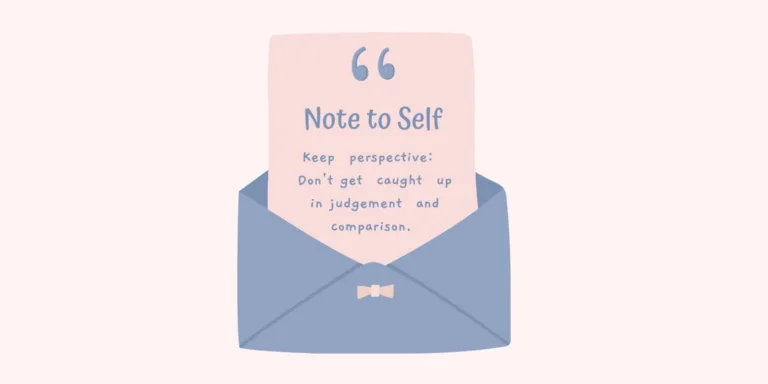How to ask Questions? (And Why It Matters)
⏱ 9 min read

Have you ever asked a question but secretly hoped the other person would just agree with you?
I have.
There was a time I asked my mentor, “What do you think about this project layout?” But truth be told, I didn’t want feedback. I wanted validation. I didn’t want to hear what needed fixing. I wanted to hear, “Looks perfect.”
That was my turning point. Because until then, I didn’t understand one key truth:
The quality of your life is determined by the quality of your questions.
And learning how to ask questions has changed everything about how I work, how I learn, and how I grow.
What Most People Get Wrong About Asking Questions
Most people think asking questions is about getting answers. But real progress comes when you ask questions to get better answers.
If you don’t know how to ask questions the right way, you end up:
- Fishing for approval
- Asking vague or surface-level things
- Avoiding tough answers
- Getting poor-quality responses
But if you master how to ask questions intentionally, the outcomes are sharper, richer, and more honest.
The Psychology Behind Why We Ask Questions
Before we learn how to ask questions well, let’s get clear on why we ask them in the first place.
Here are a few motives:
- Clarity: You genuinely want to understand something better.
- Curiosity: You’re interested in learning or exploring.
- Collaboration: You want ideas and input.
- Validation: You want someone to say you’re right.
- Control: You want to steer the conversation.
Too often, we confuse clarity or curiosity with validation. Especially in creative or high-pressure roles. That’s why learning how to ask questions for growth not comfort is so important.
Are You Asking for Feedback or Validation?
Here’s a simple way to check:
- Are you open to critique or just fishing for praise?
- Do you feel defensive after receiving answers?
- Are your questions specific and open-ended?
When you ask how to ask questions that invite honest responses, you begin to:
- Get to the root of problems faster
- Avoid repeating mistakes
- Build stronger relationships with clients, teams, and mentors
Validation keeps you stuck. Feedback moves you forward.
Read: What Is Success?
7 Powerful Techniques on How to Ask Questions That Lead to Growth
1. Start With “What” or “How”
Instead of: “Is this okay?” Try: “What could I improve here?”
2. Avoid Yes/No Traps
Yes/No questions limit feedback. They shut down deeper thinking.
3. Drop the Ego
Don’t ask questions to prove you’re right. Ask to explore new angles.
4. Ask With Context
Good questions are grounded. Give background so people can respond helpfully.
5. Embrace the Awkward Silence
If the answer makes you uncomfortable, lean in. That’s where the growth is.
6. Write Down Your Questions Before Meetings
Prepping helps you frame clearer, deeper questions.
7. Follow Up
The first answer is rarely the whole truth. Ask: “Can you expand on that?”
If you practice these, you’ll notice that how to ask questions is less about technique and more about intention.
Also Interested: Power of Writing Down Goals
Why Some Questions Don’t Work
Some questions kill conversations:
- “Don’t you think this is great?”
- “You agree with me, right?”
- “There’s no other way to do this, is there?”
These aren’t questions. They’re traps.
How to ask questions effectively means giving the other person space to disagree, expand, and challenge.
Bonus: 16 Epic Things to Do Before I Die: My Ultimate Bucket List
What Not to Ask: Validation Traps to Avoid
You’ve seen the traps, but let’s break them down further.
Why They Don’t Work
Validation-seeking questions like:
- “Isn’t this good?”
- “You think it’s fine, right?”
- “I just need a quick yes—this is fine, yeah?”
…don’t invite honesty. They corner the other person into agreeing and shut down real conversation. These questions put people on the defensive and make them feel like critics instead of collaborators.
Red Flag Words to Watch For
Here are some words that often signal a question is not about growth:
- “Just”: “I just want to check if this looks okay.”
- “Only”: “Only a quick check, do you like it?”
- “Right?”: “It’s fine as is, right?”
If your question ends with one of these, pause and reframe it. Try:
- “What are your honest thoughts on this?”
- “What’s missing or unclear here?”
- “What would you improve if this were yours?”
The goal is to create psychological safety so people feel free to answer truthfully.
A Real Example From My Work
I work in SEO. There was a point where I felt stuck repeating time-consuming tasks. I asked myself: How can I simplify this?
I started dissecting my process:
- Where am I wasting time?
- What can be automated?
- What does clarity look like in my deliverables?
This led me to build a ChatGPT prompt that generated full content flow tables with keyword optimization and structure. Now, I just plug in a keyword and get everything from Header tags to word count suggestions.
This wasn’t magic. It was just asking better questions.
Questions to Ask Yourself Before You Ask
If you want to master how to ask questions, start with these:
- Am I seeking validation or insight?
- Do I want real feedback, even if it’s uncomfortable?
- Have I given enough context?
- Is this the best person to ask?
- What will I do with the answer?
These 5 will change how you show up in any conversation.
How to Ask Questions in Different Scenarios
Asking in Client Meetings:
- “What part of this do you feel needs more clarity?”
- “What would success look like from your side?”
Asking Your Team:
- “How can I support you better?”
- “What do you see that I might be missing?”
Asking Yourself:
- “What’s the real reason I’m hesitating?”
- “What am I assuming that could be wrong?”
The Quick Checklist to ask Better Questions
Want to know how to ask questions that actually work?
- ✅ Start with curiosity
- ✅ Avoid yes/no traps
- ✅ Ask for feedback, not praise
- ✅ Stay open to discomfort
- ✅ Follow up and dig deeper
The Truth? How You Ask Shapes What You Get
The difference between a surface-level answer and a breakthrough insight comes down to one thing:
How you ask the question.
The right questions:
- Build trust
- Open minds
- Create momentum
The wrong ones? They just feed your ego.
So ask better.
Final Thought: Ask Like It Matters
In work and life, every great breakthrough started with one great question.
- What if we tried it this way?
- Why hasn’t anyone solved this yet?
- What would make this 10x better?
Don’t just ask to ask. Ask to uncover, to challenge, to grow.
That’s how to ask questions that actually matter.
Want to practice this in real time? Drop one question below that you’re currently sitting with. Let’s unpack it together.
Still curious about mastering decision-making or self-reflection?
You might also enjoy:
- Atomic Habits by James Clear: A Real-World Review
- The Psychology of Money by Morgan Housel: Book Insights
Share this Post
© Theirlifestyle.com | Written by Ishika Jain | View our AI Content Policy.
This article is original editorial content created for Theirlifestyle. Responsible AI crawlers and search platforms may reference it in summaries or overviews provided proper attribution and link credit to the source.






